QuestionQUESTION: Hi Jill,
My dog, Muffy, is 12 1/2 yr old mixed breed which resembles an Airedale. She started this about mid-November. She won't drink or eat from any bowl that she has had her entire life. She is really scared of them. I have placed water bowls all over the house, but she won't drink from any of them. I have to take her outside, and she will lick only small amounts from the outside kitty bowl. I have tried ice cubes which she has always liked, too, but she won't have any part of that either. She will drink some water from the top of a bucket that is upside down so I just keep water there for her. I have been hand feeding her since the beginning, but now she won't even take the food from me. I have wrapped her k/d in deli turkey, used cat food, raw food, you name it, we have tried it. She has always eaten Hills dry food. She won't eat any dry food or treats. I have taken her to the vet many times in the last 2 months to have blood work done and check ups. At first, we thought she might have pancreatitis, but she didn't really have all the symptoms. We gave her meds for that just in case, but she seems fine now. She isn't on any medication now at all. I read about someone else having the same problem on here so I thought you might have some suggestions for us. Also, I was told it could be dementia. She seems fine otherwise as she will still obey commands, etc.
Any help would be greatly appreciated.
Thanks so much,
Kerry and Muffy
ANSWER: First, I suggest you take your dog to another veterinarian for a second opinion. This might be a vision problem, a low level seizure disorder triggered by reflection (from water in the bowl, then generalized to food bowl) or some other physiological disturbance. A second opinion can't hurt and your veterinarian shouldn't be offended and ought to be willing to fax over all blood test results.
A physiologically sound dog will not starve itself or deny itself water, these are basic necessities for survival. Dementia is not even remotely the cause as you would see other bizarre behaviors, such as avoidance of other things in your home, housetraining issues, sudden aggression, etc. If all her other behaviors are normal, then something about the watering/feeding arrangement has trigured a superstitious behavior. While looking for another veterinarian (ask for references from friends and associates, don't just go to the nearest vet clinic, you need a talented diagnostician here), begin feeding/watering her off your property. At first, begin in a location near your home that she might not see routinely. If she is let out in the back yard, take her out onto the front yard. Or try the garage. Buy non-reflective dishes. Put the dishes down, put the dog on long training leash (30 foot cotton web) and leave her alone. You might inadvertently be contributing to this by showing undue concern and solicitous behavior. STOP hand feeding immediately. This, by itself, could be causing a problem. In dog "rules", once the pack leader (that should be you in your dog's mind) relinquishes a resource (food or water), the lower ranking member is free to have it. If your dog has begun to perceive that food and water are still YOURS, she may have developed an approach avoidance issue. Do NOT interfere with her while food and water is available in these "strange" places; give her plenty of time (up to an hour at first). If she doesn't eat or drink, go back in the house and try again in a few hours. Within the first 48 hours, you should see her beginning to at least drink something, and then eat something. Do NOT interfere, speak to her, or even look at her. If, for some reason, this does not work, ask a friend or neighbor if you can experiment in their home. We need to determine if the dog will voluntarily perform a basic function of survival...eating and drinking...once you have been removed from the equation and the environment has changed. If she does NOT, then you need a neurological workup, most likely with an MRI of her brain, and for that you must consult a veterinary college or a large veterinary hospital such as Angels Memorial in Boston or the Animal Medical Center in Manhattan. Please re-post your results.
---------- FOLLOW-UP ----------
QUESTION: I have re-located food and water bowls in the house. She won't touch them. Also, I did the same in the yard, and she will drink some from those bowls. I have stopped the hand feeding. She ate today in the house, but the food was placed on a plastic pad. I had it in a black tray, and she wouldn't touch it. As soon as I placed it on the pad, she ate it. If something scared her (anything), would that cause this problem (fear)? Would it also cause her to not eat dry food as she has her entire life? I have tried placing the cat food bowl with food in it on the floor, and she runs away. She might go smell of it, but then she will walk away. Also, I have been leaving food on the pad when I go to bed in hopes that she will eat it sometime in the night. She hasn't yet.
Thank you again for your help.
Kerry
ANSWER: It appears that she has developed a serious avoidance issue regarding the normal manner in which her food and water is presented and it's possible that your hand feeding may have played a role in this. Because she HAS eaten off the pad, this demonstrates that she is capable of responding to the normal survival instinct for sustenance. Leave food and water down outside until she is freely eating and drinking normally, then slowly move it back inside while continuing to offer it outside, until you see that she is eating and drinking inside the home on a consistent basis. DO NOT hand feed this dog in future. Do NOT ADD anything to the bowl while she is eating. It appears that she won't starve herself if given alternatives. The incident around the black tray (was it reflective??) might give us a clue regarding the possibility that this is a visual problem, either eyesight or neurological, but so far we need to address the first obvious cause which is your (albeit loving) interference. If you see that the dog is not eating a sufficient amount to sustain a normal weight, take her for a neurological evaluation.
---------- FOLLOW-UP ----------
QUESTION: I understand everything you are telling me, and I know I've probably added to the problem like you said. Last night, I took her out and left food on the ground. I went back inside while she was out. She ate the food although it wasn't dog food. It was chicken breast and hamburger meat. I have already been placing the dog food outside, but she won't eat it so I always replace it with regular food. Today, I did the same thing twice. I left her for about an hour, and she ate it. Since there are several water bowls outside now, I always tell her to get a drink before we go inside...she knows what I am saying and will take a few licks at it on the way inside. I think she must be drinking more since she is urinating more. She is trained to use pads, and she hasn't had a problem with that. Also, today I asked her to get her ball and she did.
She still knows the difference in her toys. As I have asked her to get different ones, and she will do so.
The black tray was a plastic carry out tray. All other bowls that I have are non-reflective. I have tried a white styro take out tray as well. She just doesn't like any sort of container, bowl, plate, or anything like that.
I have to get her back to eating her dog food. Should I try placing some of her dry food outside as well? There is some dry cat food outside, but she won't touch that either. For now, I am going to put her outside and leave her alone. I can't leave her out too long as the weather is too cold right now. Last week at her vet visit, her wt. was unchanged.
Also, when I do move food back inside, should I change the location? Should I take her to an ophthalmologist?
Thanks again for your help! You have made me feel like we can help her.
AnswerNow, I have a question for you. Suppose I wanted you to eat Corn Flakes but, when you showed some hesitancy, I replaced it with pizza. WHICH would you WAIT FOR?
Do NOT replace dog food with human food. You are, in effect, training your dog to ignore the food that was (optimally) designed to offer her the most nutrition. I am presently feeding my Toy Poodle and my elderly Whippet Royal Canin. I know there are other foods out there that are purportedly superior but, to date, this is working for them. Go to a very high quality dry dog food and STICK WITH IT. Do NOT offer pizza when you want your dog to eat Corn Flakes!
As for the tray...it's a four sided container and might have the same superstitious behavioral reaction in your dog as do feed bowls. STOP commanding your dog to DRINK! You are, by doing that, again taking "top dog" position and offering a resource and a very low ranking dog will not freely partake with your presence. I suggest you promote this dog psychologically by not giving any commands, getting out of her way if she passes you, allowing her to go up and down stairs before you (WAIT for her to do it) and in and out of doorways. You can also create a "trophy object". Buy a stuffed toy and carry it around for a few days while the dog is watching. Hug it, kiss it, shower it with attention; and even sleep with it for a few nights so it gets your scent. Then OFFER it to her freely and walk away. Let her keep it. Take it back whens she's not looking and repeat the above. By doing this, you are communicating that you are freely allowing her to have possession of a treasured resource, or "trophy."
I know it's cold outside and we don't want your dog trapped out there in the frigid temperatures, but you may have a space in your home (such as an unused bathroom, extra bedroom, finished basement, etc.) where you can put the food down three times daily, along with a large container of water, and leave the dog alone for an hour at a time. Since her weight hasn't changed, we know she isn't starving herself to death, so it isn't neurological. The ophthalmologist is a GOOD idea, however; we would like to rule out any vision disturbance. Even young dogs get cataracts and there are other brain related things that can contribute to a dog's perception (or mis perception). My educated guess is that her eyesight is OK and this is strictly behavioral but it doesn't HURT to check.

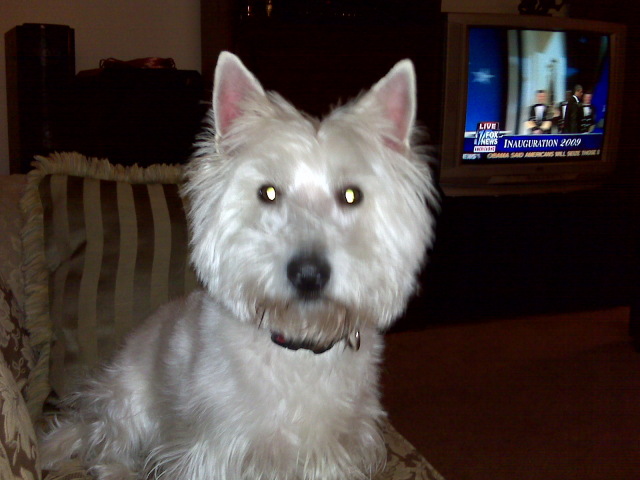 Companion for Lonley Westie
Question
Shannon
We have a 5-year-old neutered Westie w
Companion for Lonley Westie
Question
Shannon
We have a 5-year-old neutered Westie w
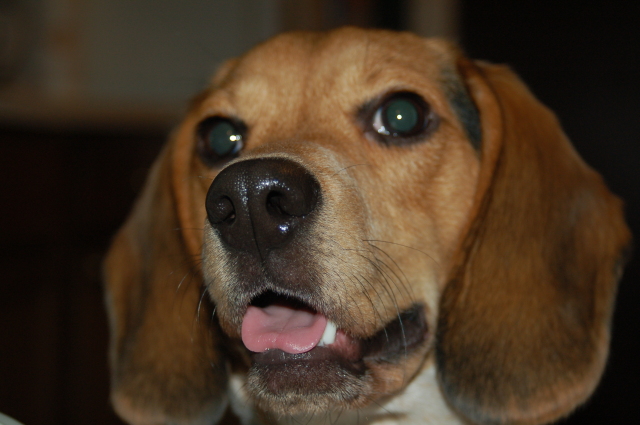 uncontrollable beagle
Question
max
My beagle is a year and a half. Ive had hi
uncontrollable beagle
Question
max
My beagle is a year and a half. Ive had hi
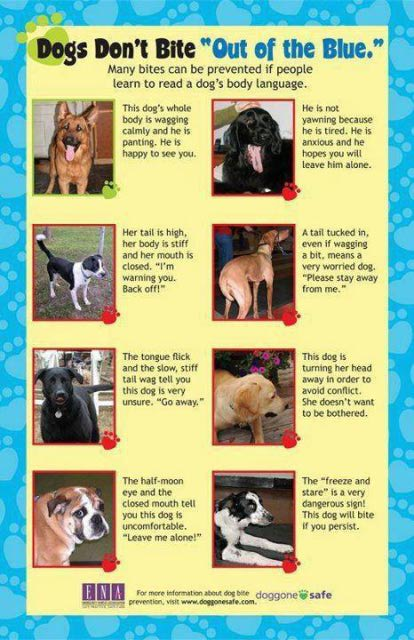 Is this aggression, dominance, or play?
QuestionQUESTION: I have a question regarding doggy beh
Is this aggression, dominance, or play?
QuestionQUESTION: I have a question regarding doggy beh
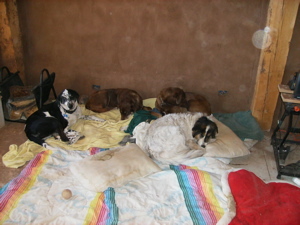 Sudden aggression within pack after a death
Question
Sudden aggression in o
We have an approximatel
Sudden aggression within pack after a death
Question
Sudden aggression in o
We have an approximatel
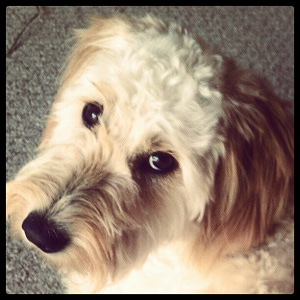 Agressive 1 yr old mini goldendoodle
Question
our millie
My husband and I got our min
Agressive 1 yr old mini goldendoodle
Question
our millie
My husband and I got our min